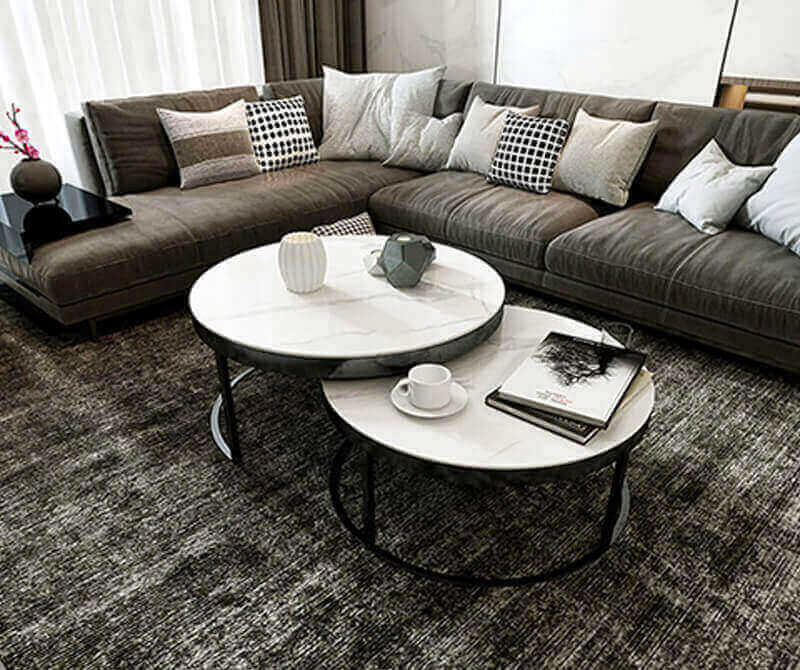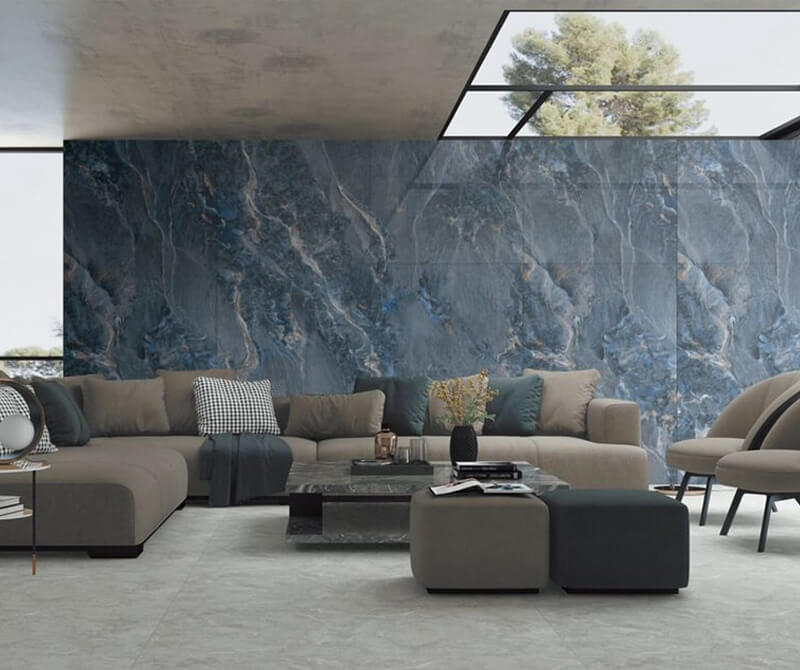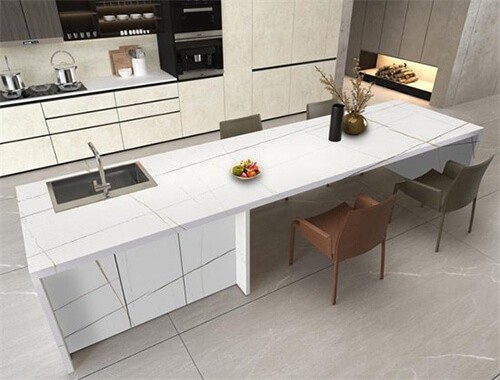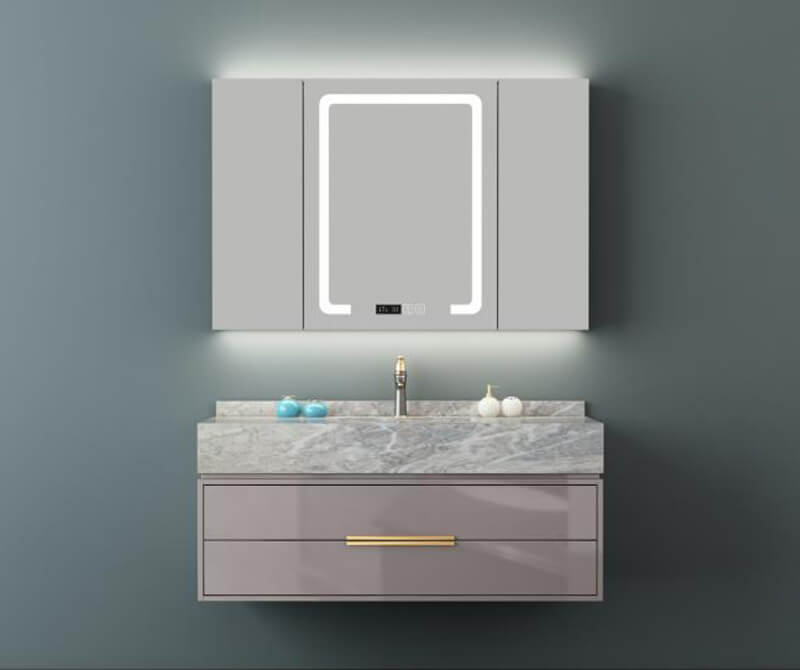How does sintered stone compare with granite?
Release Time : 2020-12-21 View Count : 602 次Granite Worktops
Granite, as with Quartzite, is essentially mother nature’s own sintered stone. Minerals fused together through intense heat and pressure over millions of years from within the Earth’s crust. Granite is extremely tough, and can blunt knives if used directly. It is also UV stable, naturally heat resistant, and is hard enough to withstand most household impacts without cracking.
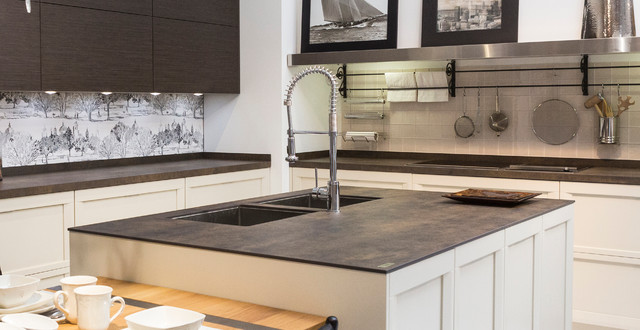
The difference between these natural stones, and engineered sintered stones, is the ingredients. Granite rocks are comprised by chance selection of earth’s natural minerals.
Perhaps the biggest weakness of Granite is its’ natural porosity. Impurities in granite’s composition create micro-pores which can trap dirt and grime on the surface, causing dullness over time. sintered stone has overcome this issue, benefiting from a sterile manufacturing environment free of contamination, and a process of vibro-compression, which tightly compresses the particles to the point that the material is completely impervious to moisture.
Therefor ANINZ develop series of sintered stone dining table for you to decorate your comfortable home .
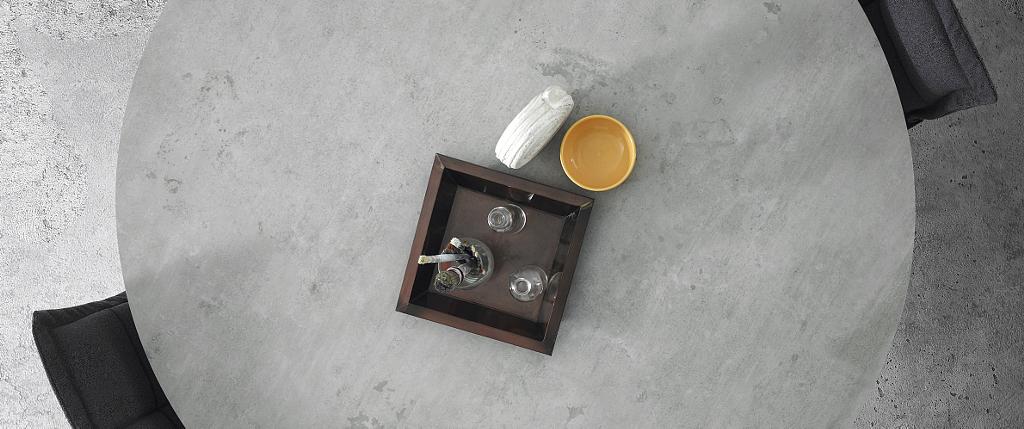
Sintered stone countertops come with many advantages.
It’s Weatherproof and Waterproof
Sintered stone is waterproof.This can provide a nice contrast to the countertop.
It’s Very Easy to Clean
It is very easy to clean sintered stone. Since it’s non-porous, it doesn’t need sealing. So without that maintenance, cleaning takes less time.
Plus, it’s also resistant to harsh chemicals, so lots of cleaning products can be used to clean the surfaces.
It’s Food-Safe
Sintered stone is food-safe. Since it’s easy to clean, using the stone as your kitchen counter is hygienic.
The non-porous material also helps reduce germs and bacteria. Preparing food on the counter is generally safe although not recommended – cutting boards are needed to reduce the risk of damage.
Still, if you wanted to cook on it, you could. Just look at these mad lads:
It Resists Heat and Staining
This stone can withstand high temperatures, making it resistant to burning. Since it is non-porous and doesn’t need to be sealed, sintered stone is highly resistant to staining.

Sintered Stone vs. Granite
Here are some of the big differences between these two materials (for a comparison of quartz and granite, click here):
Since granite is a natural stone, it’s harder to achieve a single-piece appearance. (Though some people consider that natural variability of granite more beautiful).
Granite’s stain, impact, and chemical resistance is inferior.
Granite is porous and must be resealed from time to time.
Sintered stone is lighter than granite.


